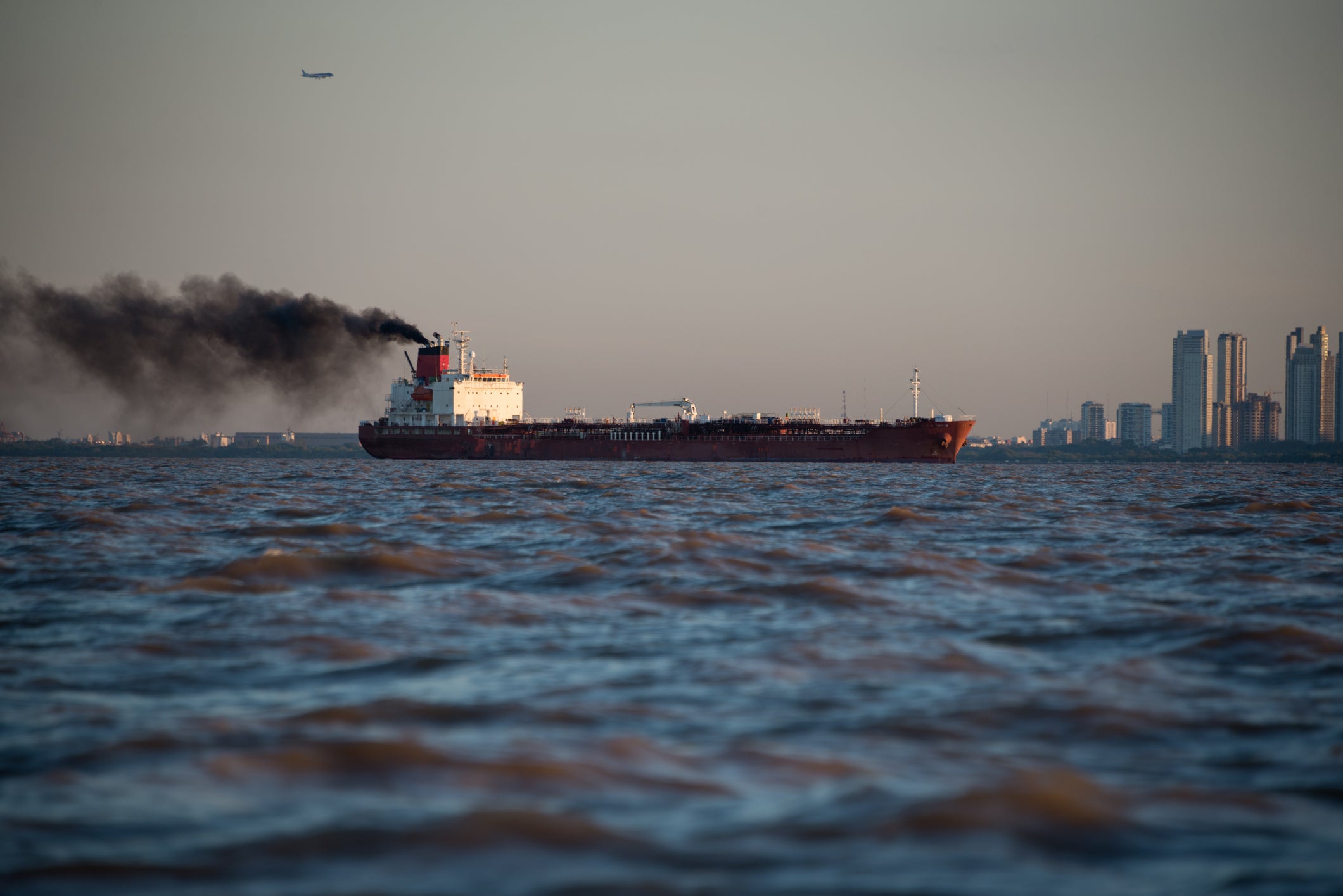Labour urges government to include international shipping emissions in CO2 targets
Government quietly approved plan to allow emissions to grow until 2030

The government is being urged to "take responsibility" for the UK's share of carbon emissions from international shipping after it quietly agreed to let the sector spew out even more CO2.
Labour says maritime emissions must be included in emissions targets and has written to ministers criticising them for signing up to "another decade of virtually unchecked emissions growth".
Sea transport accounts for around 3 per cent of the UK's emissions, but is currently not included in climate targets, despite repeated recommendations from the government's own experts that it should be.
But ministers last week signed a new international agreement that will let emissions from the sector continue to grow until 2030 – an approach that experts say is unlikely to be compatible with the UK's aim to be carbon neutral by 2050.
The opposition says the government should now take action at a domestic level, ahead of a decision by ministers on 12 December setting out the UK's climate policy.
"It’s clear from what we saw at the International Maritime Organisation last week that action on shipping emissions is stalling at a global level," Kerry McCarthy, Labour's shadow minister for green transport, told The Independent.
"The Government now has to show both domestic and international leadership by taking responsibility for our share of emissions from international shipping.
"With the climate emergency worsening and with the UK set to host the COP26 climate summit next year, progress from the Government on meeting net zero emissions has never been more important."
The statutory Committee on Climate Change (CCC), which advises the government on its approach to cutting emissions, has previously called for maritime emissions to be included in the UK's contribution to cutting CO2. It is expected to make the call again on 9 December when it issues a scheduled new round of advice to the government.
In a letter to transport secretary Grant Shapps last September CCC chair Lord Deben, wrote that "formal inclusion of IAS emissions in the UK net-zero target would complement agreed international policies and should not be interpreted as a unilateral UK approach to reducing emissions in these sectors".
The new International Maritime Organisation agreement signed this week is expected to allow emissions to grow by 14 per cent by 2030, only 1 percentage point lower than the current expected trajectory of 15 per cent growth if the sector is left to its own devices.
Decarbonising maritime trade is expected to be difficult because the technology to propel massive cargo ships without burning fossil fuels has not yet been demonstrated. The government says it is investing £20 million in a clean maritime demonstration competition to help kick-start research.
Responding to Labour's call, a spokesperson for the Department for Transport said: “The UK is going further than ever to tackle shipping emissions, with over £20m being invested into greener maritime, and as we look towards COP 26, we will turbocharge our efforts to combat the threat of climate change.
“The measures agreed at the recent Maritime Environment Protection Committee represent the first step of many under the Initial International Maritime Organisation (IMO) Strategy to decarbonise international shipping.
“The Government will be working closely with other member states and the IMO over the coming months to develop robust medium- and long-term measures.”
Join our commenting forum
Join thought-provoking conversations, follow other Independent readers and see their replies
Comments
Bookmark popover
Removed from bookmarks